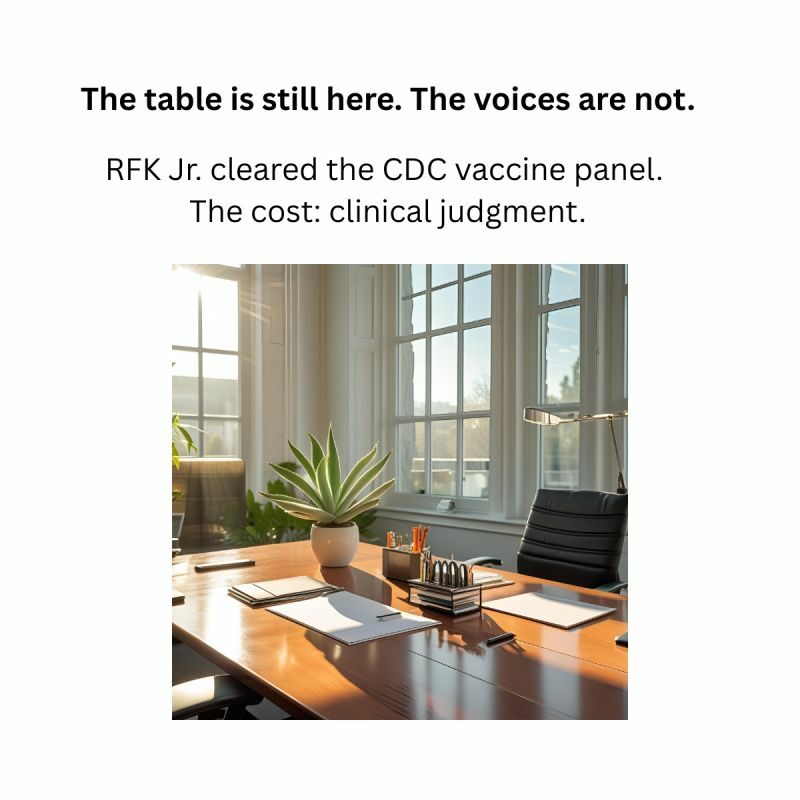We’ve all rolled our eyes at a pharma-funded study.
But if we tossed out every researcher who’s ever worked with industry—what evidence would we have left?
This week, RFK Jr. fired every member of the CDC’s Advisory Committee on Immunization Practices. All 17.
His reason? “Conflicts of interest.”
But removing an entire panel of experts risks sidelining the evidence itself.
At Carlat Publishing, we take conflicts seriously. Here’s what that looks like in practice:
→ We rarely publish content from clinicians who’ve received pharma funding
→ When we do, we disclose it fully
→ Contributors are recused from discussing products they have ties to
→ Transparency isn’t optional—it’s editorial policyThe CDC’s vaccine panel follows a similar model:
→ Members can’t hold stock in vaccine companies
→ They’re barred from serving on industry advisory boards
→ Any relevant conflicts must be disclosed
→ Members recuse themselves from votes where there’s a potential conflict
→ Meetings and supporting materials are open to the public
This isn’t a perfect system. But it’s a transparent one.And that matters.
RFK Jr. ignored all of it.
And in doing so, he undermined a foundational truth in medicine:
We need both independence and expertise to protect public health.You don’t rebuild trust by burning down the system.You do it by making the system transparent.
When do conflicts of interest actually make you question the evidence?
How do you decide which sources are still credible?
And what would it take to rebuild trust—without abandoning expertise?
Join the conversation on LinkedIn with Dr. Carlat
Related Articles
- Annual Flu Vaccines
Author: Thomas Jordan, MD
- Pharmacotherapy for Stimulant Use Disorders Author: Rehan Aziz, MD
- Current Pharmacological Treatment of Dementia Author: Cary S. Gunther, PhD


_-The-Breakthrough-Antipsychotic-That-Could-Change-Everything.jpg?1729528747)



